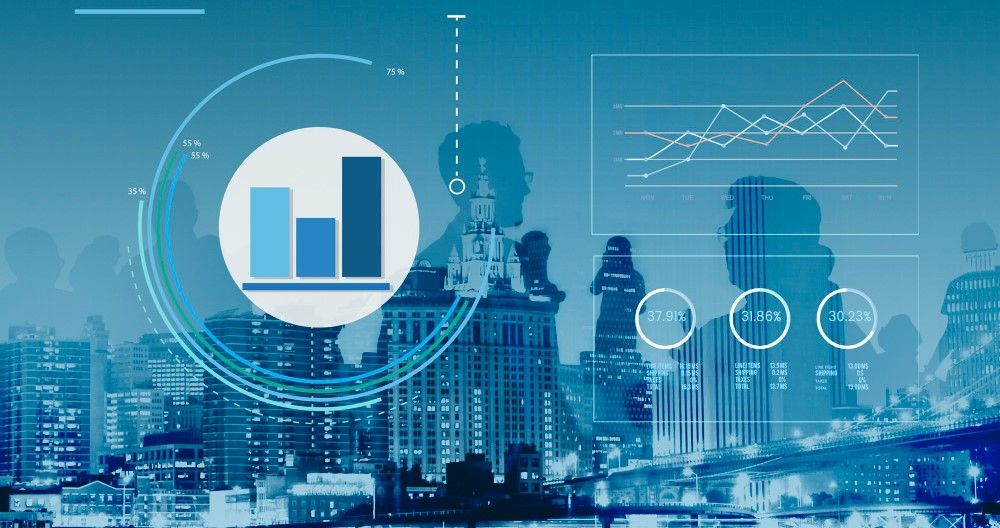Like strawberries and cream, or beer and pretzels, some things just go together well.
So, it is with business and buzzwords. The two just go hand in hand together.
Whether you like them or not, buzzwords are here to stay, and nowhere is this more true than in the chemical industry.
Regardless of your preference for ‘corporate synergy’ or ‘blue skies thinking,’ here are the top five buzzwords used in the chemical industry.

Sustainability
Sustainability is crucial in the chemical industry for several reasons. Firstly, it helps reduce the environmental impact of chemical processes, such as minimizing waste generation and emissions. Secondly, sustainable practices promote the efficient use of resources, such as energy and raw materials, leading to cost savings. Thirdly, sustainability enhances the industry's reputation and helps meet regulatory requirements. Finally, it also fosters innovation, encouraging the development of greener and safer chemical products and processes.
Simply put, sustainability is a buzzword but a now vital part of the chemical industry.
Blockchain
In order to efficiently manage the supply chain, parties can record price, date, location, quality, certification, and other pertinent information using a blockchain supply chain. This data's accessibility via the blockchain can improve the material supply chain's traceability, reduce losses from grey and counterfeit markets, increase transparency and compliance regarding outsourced contract manufacturing, and possibly strengthen an organization's standing as a pioneer in ethical manufacturing.

The massively distributed digital consensus of the blockchain model of trust has the potential to completely transform supply chains and trade throughout the digital economy.
Artificial Intelligence and Machine Learning
According to analysis by chemical industry consultants at McKinsey and Sons, “More than 80% of executives in the chemical industry acknowledge that artificial intelligence shall have a huge impact on the business in the next three years.”
Through AI implementation and task automation, chemical industry specialists can accelerate the process of discovering new raw materials, molecules, formulas, medicines, and industrial ingredients.
AI prediction allows for modifications at each stage of the molecular development process. Additionally, it has the ability to forecast future material supply and demand which can help in obtaining raw materials at the best possible price and selling the finished product at the highest possible price, both of which are key to a company's bottom line.

When compared to human forecasting errors, the application of AI in the chemical sector can significantly reduce predicting errors and can even be used to estimate consumption which helps businesses prevent overstocking and streamlines the supply chain.
Furthermore, with AI-enabled data analysis and smart sensors companies can easily track and adjust their production, as smart data analytics identifies, defects and alerts staff about inconsistencies in chemical products.
Advanced Analytics
Specialty and commodity chemical companies have access to more advanced analytics tools and cheaper computational power than ever before. They can leverage this data to gather information from various sources and use platforms for machine learning and visualisation to find ways to optimise plant operations.
The understanding of what goes on in a chemical plant's manufacturing operations can be greatly increased by using advanced analytics. This can assist chemical companies in resolving issues that were previously insurmountable as well as uncovering issues they were unaware of, like unprofitable production lines or hidden bottlenecks.
Utilising previous performance data from production units and associated gear, predictive maintenance forecasts when equipment is likely to break, minimising downtime and locating the source of the issue. Y.E.T., an acronym for yield, energy, and throughput analytics, can be used to make sure that each manufacturing unit is running as efficiently as possible, either by increasing yields and throughput or lowering energy use.

In contrast, value-maximization modelling examines thousands of variables and circumstances that affect an integrated supply chain's overall profitability, from the procurement of raw materials through the intricate and frequently connected chemical manufacturing processes to final sales, and then offers insights on how to maximise.
The Internet of Things and Industry 4.0
The productivity of businesses is changing as a result of developments in edge computing and ubiquitous networking. Petabytes of data can be analysed via this connectivity in conjunction with AI and machine learning to influence business outcomes. Manufacturers have long used the Internet of Things, but with Industry 4.0, the entire value chain—from development to production to supply chain—can be connected, allowing for faster, more flexible, and more efficient processes that result in lower-cost, higher-quality, customised goods. Reduced risks, material costs, and customer-centric innovation can all be fuelled by data-driven insights.

Love them or loathe them, the buzzwords used in the chemical industry do have a purpose, as they are useful for explaining a novel idea. They help to simplify the explanation of a company proposition. For instance, requesting "sustainable raw materials" is simpler than a chemical supplier asking for "raw materials that conserve an ecological balance by avoiding the depletion of natural resources."
So, it’s true that the chemical industry uses buzzwords, but for good reason. Buzzwords are used in the chemical business because they are relevant.
Photo credit: Rawpixel on Freepik, Vecstock, WangXiNa, Freepik, Towfiqu barbhuiya, & Amador Loureiro